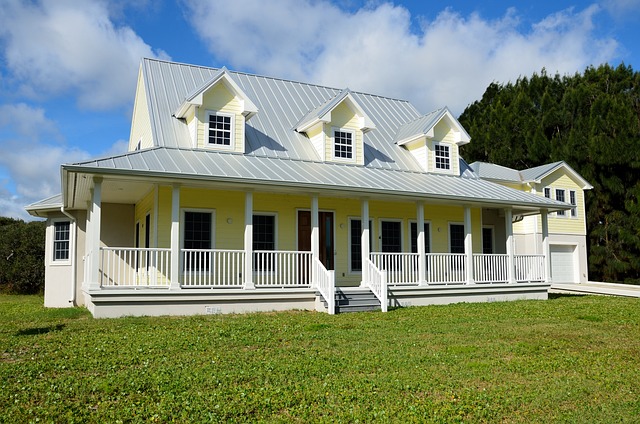When purchasing an Executive Condo (EC) in Singapore, it's essential to understand the unique financing options available to you. These include a significant downpayment of 10% to 25% of the purchase price, with the Margin of Finance (MOF) for Singapore Citizens capped at 75%, and for Permanent Residents ranging from 80%-90%. Financing terms can extend up to 30 years, aligning with your age to ensure manageable monthly payments. However, longer loan tenures mean more interest over time. It's crucial to consider the Total Debt Servicing Ratio (TDSR) and plan for potential interest rate changes. Additionally, you should anticipate financial challenges by creating a buffer to safeguard your investment against market fluctuations and life events, ensuring long-term stability and profitability when buying an EC in Singapore.
navigating the real estate landscape, prospective homeowners interested in purchasing an Executive Condo (EC) in Singapore face a variety of financing options. This article delves into the nuances of EC eligibility, explores grant opportunities via CPF, examines bank loan structures, compares interest rates for mortgages, and sheds light on the role of private bank loans in such transactions. Whether you’re considering downpayments or looking ahead to long-term financing, understanding these factors is key to making an informed decision when buying an Executive Condo.
- Understanding Executive Condo (EC) Eligibility Criteria
- The CPF Housing Grant for Prospective EC Owners
- Bank Loans and Financing Plans for Buying an Executive Condo
- Comparing Interest Rates on Executive Condo Mortgages
- The Role of Private Bank Loans in EC Purchases
- Dealing with Downpayments and Margin of Finance in EC Transactions
- Long-Term Financing Considerations for Your Executive Condo Investment
Understanding Executive Condo (EC) Eligibility Criteria

When considering the purchase of an Executive Condo (EC) in Singapore, it is crucial to familiarize oneself with the eligibility criteria set forth by the Housing & Development Board (HDB). ECs are unique housing options designed for middle-income families who aspire to own a larger home or prefer living in a condominium environment. Unlike public flats, only Singaporean couples are eligible to apply for an EC, with at least one applicant being a first-timer buyer. This means that both members of the couple, as well as their existing flat (if any), must not have been owned flat under the Joint Singles Flat scheme, the Single Singaporean Citizen Flat scheme, or received the Open Application Quantum grant.
To buy an Executive Condo, individuals must also meet the minimum occupancy period (three years) for their current flat before applying for a new EC. Additionally, applicants’ combined monthly income should not exceed SGD14,000 at the time of application, and they cannot own any private residential property or have disposed of one within the preceding 30 months. The eligibility criteria are designed to ensure that ECs cater to the needs of upgrading families within the appropriate income brackets, facilitating a smooth transition from public to private housing without overlapping with the eligibility for public rental housing. Prospective buyers should thoroughly review these criteria and consult with financial institutions or the HDB to fully understand their eligibility before proceeding with the purchase of an Executive Condo.
The CPF Housing Grant for Prospective EC Owners

When considering the purchase of an Executive Condominium (EC) in Singapore, prospective owners have the opportunity to leverage the CPF Housing Grant, which can significantly defray the costs associated with buying an EC. This grant is designed to assist individuals and families with their housing needs by providing financial assistance based on a tiered income ceiling. For example, those who fall within the eligibility criteria for the ‘Yang’ or ‘Phua Chu Kang’ grants can receive up to $40,000, making it more feasible to purchase an EC with a smaller outlay. The CPF Housing Grant is a key consideration for buyers as it eases the financial burden and facilitates ownership of an EC, which sits between a public flat and a private condominium in terms of price points and facilities. Prospective EC owners should familiarize themselves with the various CPF grants available, including the Major Home Renovation Grant, which can be used to renovate their new home post-purchase, ensuring they can tailor their living space to their preferences while managing their finances effectively. It’s advisable for buyers to check the latest eligibility requirements and grant ceilings as these details are subject to change and may vary based on the prevailing policies at the time of purchase. Understanding the CPF Housing Grant options available is a crucial step in the EC buying journey, enabling buyers to make informed decisions that align with their financial planning and long-term housing goals.
Bank Loans and Financing Plans for Buying an Executive Condo

When contemplating the purchase of an Executive Condo (EC) in Singapore, potential buyers have a variety of financing options available to them, primarily through bank loans tailored for this specific type of property. Unlike standard HDB flats, ECs are designed for middle-income families and are situated outside the city area, offering a balance between affordability and quality living spaces. Prospective buyers can secure loans from various banks that specialize in housing loans, with each institution offering competitive interest rates and flexible repayment terms. These bank loans are structured to cater specifically to EC purchases, taking into account the unique nature of these properties and their eligibility criteria, which differ from those for public or private residential homes.
The Singaporean government has set guidelines that dictate the maximum loan tenure and loan-to-value (LTV) ratio for ECs, which banks adhere to when offering loans. This ensures that buyers are able to manage their mortgage responsibly over the loan period, typically up to 25 or 30 years. Additionally, potential buyers should consider the total debt servicing ratio (TDSR) framework, which caps the amount of an individual’s monthly income that can be used to repay all types of loans, including mortgages. By carefully assessing their financial situation and exploring the various bank loan options available, buyers can make an informed decision when purchasing an Executive Condo, ensuring a stable financial foundation for their future home ownership.
Comparing Interest Rates on Executive Condo Mortgages

When buying an Executive Condominium (EC) in Singapore, a critical aspect to consider is the interest rates on the mortgages available for such properties. Prospective buyers should scrutinize the various financing options as these can significantly impact their monthly payments and overall financial commitment over the tenure of the loan. The Singaporean government’s Housing & Development Board (HDB) offers loans for EC purchases, with prevailing interest rates that are typically linked to the CPF Ordinary Account (OA) rate or the floating rate based on market conditions. Private financial institutions also provide mortgage options, which may include fixed-rate and floating-rate plans. Prospective buyers should compare these rates, taking into account their risk appetite and budgetary constraints. Fixed-rate loans offer stability by maintaining a set interest rate for a predetermined period, while floating-rate loans are tied to benchmark rates and can fluctuate over time. Evaluating the interest rates in relation to your financial planning horizon is essential when deciding between these options. For those looking to purchase an EC, understanding the nuances of mortgage interest rates is a prudent step towards securing favorable financing terms and making an informed decision for their property investment.
The Role of Private Bank Loans in EC Purchases

When considering the purchase of an Executive Condo (EC) in Singapore, a savvy buyer may explore various financing options beyond traditional bank loans. Private bank loans represent a niche avenue for securing the necessary capital to buy an EC. These loans are often provided by private banks that cater to high-net-worth individuals or those with substantial financial standing. They offer more personalized service, with loan terms tailored to the borrower’s unique financial situation. For instance, private bank loans may come with higher loan-to-value (LTV) ratios compared to standard bank loans, allowing buyers to finance a larger portion of their EC purchase. This can be particularly advantageous for those who wish to minimize upfront cash outlay or have capital tied up in other investments. Additionally, the interest rates on private bank loans might be more competitive, and they could offer greater flexibility in repayment structures. Prospective EC buyers interested in private banking solutions should consider the benefits of these loans, including potential savings on interest and the convenience of a more bespoke lending experience. However, it’s important to evaluate such options carefully, taking into account factors like eligibility criteria, interest rates, and repayment conditions, as these loans may come with stricter qualification requirements. Buyers should also consider the long-term implications of their choice, ensuring that the loan aligns with their financial planning and investment strategy for buying an Executive Condo in Singapore’s property market.
Dealing with Downpayments and Margin of Finance in EC Transactions

When purchasing an Executive Condo (EC) in Singapore, potential buyers must navigate the unique financing options available to them. A significant aspect of this process is managing the downpayment and understanding the Margin of Finance (MOF) that banks typically require. The downpayment for an EC can be substantial, often ranging from 10% to 25% of the purchase price, depending on the buyer’s financial profile and the prevailing regulations set by the Housing & Development Board (HDB). Prospective buyers should prepare for this upfront cost as it represents a considerable sum that must be ready at the time of application and before the acquisition of the EC unit.
In addition to the downpayment, the MOF is another critical component in EC transactions. The MOF refers to the percentage of the property’s value that can be financed by a bank or financial institution. As of the current regulations, the MOF for an EC is up to 75% for Singapore Citizens (SCs) and 80%-90% for Permanent Residents (PRs), subject to specific loan-to-value limits. This means that a portion of the purchase price must come from your own funds or be saved for over time, as the loan cannot cover the entire cost. Understanding your eligibility for financing and the terms offered by financial institutions is crucial when buying an Executive Condo. It’s advisable to engage with multiple banks or a mortgage broker who specializes in property financing to explore the best options available, ensuring that you are well-prepared for the financial commitments associated with EC ownership.
Long-Term Financing Considerations for Your Executive Condo Investment

When considering long-term financing for your Executive Condo (EC) investment, it’s crucial to evaluate various factors that will influence the viability and profitability of your purchase over time. Prospective buyers must assess their financial stability and repayment capacity, as EC loans are structured differently from residential property loans. Typically, banks offer loan tenures up to 25 or 30 years for an EC, which can align with the owner’s age limit to ensure that the mortgage is manageable throughout the loan period. It’s advisable to opt for a longer loan tenure to keep monthly installments lower, thereby reducing financial strain. However, this also means a greater amount of interest paid over time.
Another key aspect in long-term financing considerations is the potential for total debt servicing ratio (TDSR) changes. The Monetary Authority of Singapore has implemented the TDSR to ensure that individuals do not overextend themselves with loans. As such, buyers should remain vigilant about their financial obligations and the potential for interest rate fluctuations, which can impact repayment plans. Additionally, it’s prudent to anticipate unforeseen circumstances that may affect your income or increase living expenses. By planning for a buffer in your finances, you can safeguard your investment against such eventualities. For those looking to buy an Executive Condo, understanding these long-term financing implications is essential for securing a stable and profitable investment over the years.
When considering the purchase of an Executive Condo (EC) in Singapore, prospective buyers have a range of financing options to explore. This article has delved into the eligibility criteria for ECs, the availability of CPF Housing Grants, and the various bank loan and financing plans tailored for this unique segment of the property market. It’s clear that understanding the interest rates on EC mortgages is crucial when comparing financial products to suit your investment needs. Additionally, navigating downpayments and the margin of finance are key components in the transaction process. For those looking beyond traditional loans, private bank options also present themselves as viable alternatives. Long-term financing considerations underscore the importance of making an informed decision that aligns with your financial objectives when buying an Executive Condo. Prospective buyers should carefully assess these factors to make the best choice for their investment journey in the dynamic Singapore property landscape.



